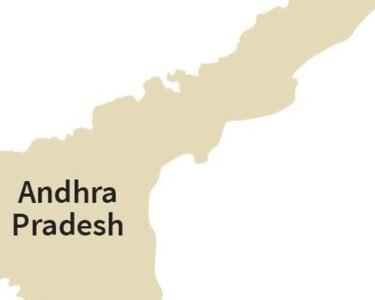In a bold move aimed at strengthening grassroots waste management systems, Andhra Pradesh Chief Minister N. Chandrababu Naidu has instructed officials to assign the responsibility of converting wet garbage into compost to DWCRA (Development of Women and Children in Rural Areas) groups. This directive comes as part of the state’s broader strategy to promote sustainable solid waste management while empowering women-led self-help groups across rural and urban areas.
Women’s Empowerment through Environmental Responsibility
During a recent review meeting with senior officials and district collectors, CM Naidu emphasized the importance of involving women’s self-help groups in environmental activities. He highlighted how DWCRA groups can play a critical role in waste segregation and composting activities, especially in semi-urban and rural areas where waste disposal remains a challenge.
By tasking DWCRA groups with composting wet garbage, the government seeks to ensure two key outcomes: proper waste management and improved livelihood opportunities for women. The initiative is expected to provide both income and leadership opportunities to thousands of women across the state.
The Role of DWCRA Groups in Rural Development
DWCRA groups, a part of the larger self-help group ecosystem in Andhra Pradesh, have long been instrumental in driving rural development programs. From managing community kitchens to supporting micro-enterprises, these groups have consistently delivered results. CM Naidu’s new directive leverages their grassroots reach and organizational strength to address the rising problem of unsegregated waste.
The Chief Minister said that the government will provide necessary training and equipment to these groups. Local bodies and panchayats will work closely with DWCRA groups to identify areas where composting units can be established.
A Sustainable Solution to Urban Waste
With rapid urbanization and changing consumption patterns, the quantum of solid waste generated in towns and villages has risen significantly. Of the total solid waste, nearly 50% comprises biodegradable or wet waste. Unfortunately, most of this waste is either dumped in open areas or sent to landfills without segregation, leading to environmental and health issues.
CM Naidu said converting wet garbage into compost at the source is the most effective way to deal with the issue. Compost not only reduces the burden on landfills but also improves soil fertility when used in agriculture. This approach will also reduce the dependence on chemical fertilizers, aligning with the state’s broader goals of promoting organic farming and sustainable agriculture.
Pilot Projects and Expansion Plans
The Andhra Pradesh government plans to begin pilot projects in selected towns and villages where DWCRA groups are already active. These pilot composting units will serve as models for other regions to replicate. District collectors have been asked to identify locations and submit proposals for funding and technical support.
The compost generated will be sold to farmers at affordable rates through cooperative societies or agricultural centers. Officials noted that the revenue generated will be shared with the DWCRA groups, adding a strong financial incentive to the initiative.
Public Awareness and Community Participation
CM Naidu also stressed the need for public awareness campaigns to educate people about waste segregation and the benefits of composting. He called on municipal bodies, NGOs, and school children to actively participate in cleanliness drives and composting demonstrations.
“People must understand the value of segregating waste at home. When biodegradable waste is properly collected and composted, it turns into a resource instead of becoming a liability,” Naidu said.
Community support will be key to the success of this program, as households must begin segregating wet and dry waste before it is handed over to the DWCRA-led composting units.
Infrastructure and Technical Support
To ensure smooth implementation, the government has promised to provide compost bins, training sessions, and technical guidance through the Panchayati Raj and Rural Development departments. Experts in composting techniques, solid waste management, and organic farming will be roped in to train DWCRA members.
The government is also considering subsidies for small-scale composting units and organic farming initiatives. These measures are expected to attract more women to participate and scale up the operations in the long run.
Strengthening the Swachh Andhra Mission
This initiative is also closely aligned with the Swachh Andhra Mission, which aims to promote cleanliness, hygiene, and environmental sustainability throughout the state. Andhra Pradesh has made significant progress in building sanitation infrastructure, and CM Naidu wants to take the next step by focusing on proper waste management and resource recycling.
“We must turn waste into wealth. Our women’s groups have the capacity and commitment to make this happen. Let us provide them with the tools, training, and trust to lead this movement,” Naidu stated in the meeting.
Conclusion: Empowerment through Environmental Action
CM Naidu’s vision of integrating DWCRA groups into the waste management process reflects a holistic approach to governance — one that combines environmental sustainability with women’s empowerment. If implemented effectively, this initiative can serve as a model for other states to follow.
By giving women a leading role in composting efforts, the government not only addresses the waste management crisis but also reinforces the importance of community-driven development. The success of this program will depend on coordinated efforts, timely infrastructure support, and continued public participation.







